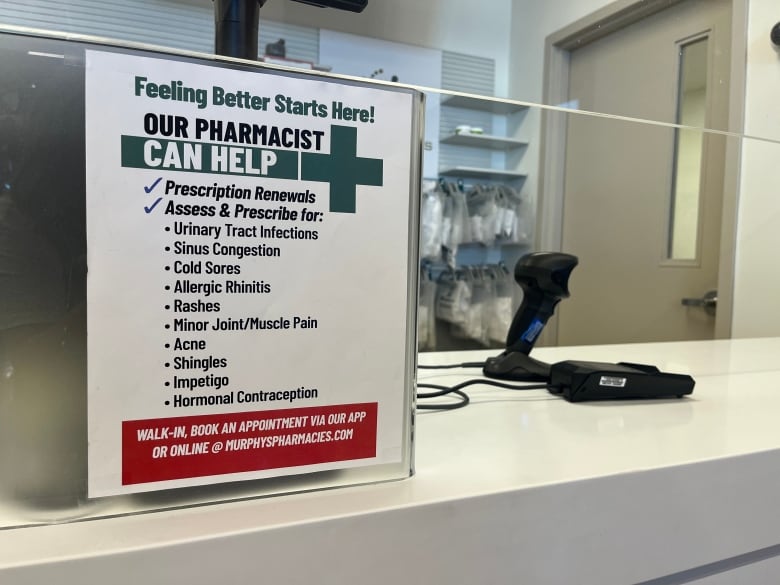Infection
P.E.I. partners with researchers looking into STI testing at pharmacies
A new study wants to look into how making testing for sexually transmitted and blood-borne infections (STBBIs) more accessible can impact the health of Prince Edward Islanders.
A group of researchers with Memorial University’s School of Pharmacy has partnered with organizations and government agencies across Canada — including Health P.E.I. — to explore testing for such diseases at community pharmacies.
The team has been granted $2 million in federal funding. Some pharmacies in Nova Scotia, Newfoundland and Alberta are already offering accessible testing for HIV, hepatitis C and syphilis as part of the study.
Debbie Kelly, director of the Medication Therapy Services Clinic at the MUN School of Pharmacy, is leading the project.
“Just like if you were going to get counselled about how to inject yourself with insulin, for example, you’d be taken into the private counselling room in the pharmacy,” she said. “The pharmacist would describe to you … sort of the benefits and the limitations of the different tests, and then they would administer the tests.”
Point-of-care tests for HIV, hepatitis C and syphilis tests provide patients with results right away, though if they’re reactive they still have to be confirmed by a lab.
Results for dry spot tests, which only require the prick of a finger, take a couple of weeks, Kelly said.
Information Morning – NS8:51Atlantic Canadian researchers want to make STI testing more accessible
Featured VideoResearchers at Memorial University and Dalhousie University talk about a collaborative research program that’s exploring the possibility of offering testing for sexually transmitted infections through local pharmacies.
“In the model that we’ve been studying, the pharmacist can provide a blood work requisition right away. So you can go to the lab and get your blood work done and a direct referral to a physician or a nurse,” she said.
“If it’s negative, then you can get education about how you can protect yourself in future.”
More options
Kelly said the pharmacy model has shown to be especially successful for vulnerable populations and the LGBTQ community.
Providing easier access to STBBI diagnosis and testing is one of the key points of the provincial government’s new strategy on the file, which the province’s chief public health officer says is still under development.
Island Morning7:27Sexually transmitted infections steady on P.E.I.
Featured VideoWe’ll bring you the latest numbers on sexually transmitted diseases here on the Island. Dr. Heather Morrison will tell us about the latest approach to testing and treatment.
Dr. Heather Morrison told CBC News earlier this month the province has already improved the ability to treat STBBIs at P.E.I.’s Sexual Health, Options and Reproductive Services clinic and UPEI’s Health and Wellness Centre.
Morrison said the CPHO is also working with other community organizations to make testing more accessible.
Meanwhile, the province is still working to fill gaps in primary care through its Pharmacy Plus program, which covers consultations for a couple dozen common ailments within pharmacists’ scope of practice.
While there’s been no funding commitment for Kelly’s STBBI testing model in the province yet, the researcher said Health P.E.I. has shown some interest.
“We’re looking to take it to the next level so that we can bring it to your community, especially for people that don’t have a primary care provider or maybe have challenges with accessing care that way,” Kelly said.
“It’s just about offering another option and so far, we’re hearing that people really like having it in their pharmacy.”

